Welcome to our comprehensive guide on nurturing your rose garden with organic and natural solutions. In this blog, we will explore various organic fertilizers, their benefits, and how they can enhance the beauty and health of your roses. Whether you are a seasoned gardener or just starting out, our aim is to provide you with valuable insights to grow robust and vibrant roses using environmentally friendly practices. Through a sustainable approach, you can enjoy a thriving garden that contributes positively to the ecosystem. Join us as we delve into the world of organic rose care and discover the best practices to keep your blooms flourishing.
What Is the Best Fertilizer for Organic Roses?
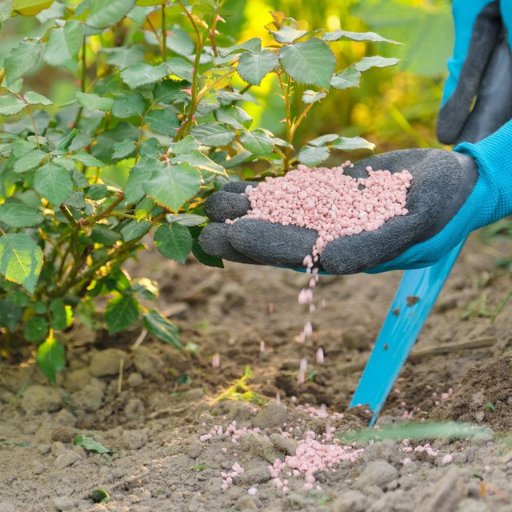
Understanding Fertilizer for Roses
Organic roses’ plant food selections include well-balanced organic ones, with the major nutrients being nitrogen, phosphorous and potassium. Compost, well-rotted manure, bone meal fish emulsion and seaweed extracts are examples of organic fertilizers that can be utilized. These not only enhance soil fertility but also improve its structure as well as ability to retain water. Moreover, organic fertilizers release nutrients slowly so that steady growth is promoted while the detrimental impacts of synthetic chemicals are avoided hence nourishing your roses constantly.
Types of Organic Fertilizer
For one’s own good health and survival of roses, it’s vital to choose the right kind of organic fertilizer among the following currently highly recommended types:
- Compost: It is a very flexible option for any rose garden which increases soil structure improving water holding capacity in it and provides essential nutrients which are indispensable for plant growth.
- Aged Manure: Superannuated manure from cows or horses or chickens delivers valuable nitrogen, phosphorous and potassium into the soil. In addition it helps improve microbial activities in them which stimulate yields.
- Bone Meal: Use bone meals at planting time or early vegetative development stage for enhanced root strength and flower production through increased calcium content in them. This is crucial during this period.
These help create an ecosystem that is healthier thus providing necessary nutrients needed by roses thus making it sustainable.
How to Choose the Right Fertilizer for Your Rose Garden
There are several factors you should consider when choosing fertilizer for your rose garden including; type of soil, variety of rose being grown and stage at which they grow. With such suggestions on leading websites here some guidelines can help you find out what suits best your roses:
- Soil Testing: Conducting a soil test will enable you to identify nutrient deficiencies and pH levels in your garden which will guide you to select the most appropriate fertilizer that will address these specific needs hence best rose growth.
- Nutrient Composition: Go for fertilizers that consist of a balanced mix of essential nutrients such as Nitrogen (N), Phosphorous (P) and Potassium (K). A balanced N-P-K ratio is necessary for overall plant health. For example, 10-10-10 is good for general feeding while higher phosphorus formulas encourage blooming.
- Type of Fertilizer: Compost, aged manure and bone meal are some examples of organic fertilizers suitable for use on roses. They enrich soil structure, slowly release nutrients and promote beneficial microbial activities. Synthetic fertilizers should be avoided because they become imbalanced nutritionally over time in addition to causing soil deterioration.
- Application Timing: It is important to apply the right type of fertilizer at different growth stages during the year. In early spring when there is new growth take place apply an all-purpose balanced fertilizer such as 20-20-20 followed by another application every four to six weeks throughout the growing season. Reduce or stop fertilizing after summer’s end so plants can begin preparing for dormancy.
From these factors, you will choose the most appropriate fertilizer that ensures healthy roses through sufficient supply of food needed by those flowers thereby promoting their blossoming.
How Often Should You Fertilize Roses Organically?
Strategic Times for Applying Organic Fertilizers
Organic fertilizers for roses should be applied every 4-6 weeks during the growing season. Start from early spring when new growth starts appearing and continue going forward until late summer so as to assist plants in transitioning into dormancy. It is good to have well decomposed compost, aged manure or balanced all-purpose organic fertilizer that can give the necessary nutrients. Soil health can be maintained by adding compost or mulching with organic matter for water retention and improving soil structure as the growing season progresses. Towards the end of summer, it is useful to stop applying fertilizers so that they could go into a period of dormancy. By following this schedule, you guarantee that your roses are fed with important nutrients in an organic way throughout their periods of growth.
Application Frequency of Organic Fertilizers
In order for roses to grow optimally and bloom well during their active seasons, it is advisable to use organic fertilizers after every 4 – 6 weeks. As we start seeing new shoots from early spring through late summer when the plant will prepare itself for dormancy, do not stop feeding them altogether. Utilize composts that have rotted well, aged manure samples or all-purpose organic fertilizers whose N-P-K values are evened out. Therefore whenever your flowers require certain adjustments and local weather conditions dictate your farming needs, you must make sure the soil retains its fertility as well as allowing rapid growth.
A Seasonal Guide on How to Fertilize Roses
To keep roses strong and healthy throughout the year’s circle a careful fertilizer program must be followed properly by rose gardeners. Here is a concise seasonal guide based on leading gardening resources:
Early Spring:
- Start with a balanced organic fertilizer when there are signs of new growth.
- Choose products like rotting compost or old dung heaps.
Mid Spring-Mid Summer:
- Continue feeding every 4-6 weeks using an all-purpose organic fertilizer.
- Concentrate on getting a balanced ratio of N-P-K to facilitate growth of both leaves and flowers.
Late Summer:
- Reduce fertilizing gradually to ready the plants for dormancy.
- Improve soil health through addition of compost or organic mulch to retain moisture.
Soil tests on a regular basis and watching your roses can help you in adjusting the fertilization schedule to your specific growing conditions.
What Nutrients Do Roses Need?
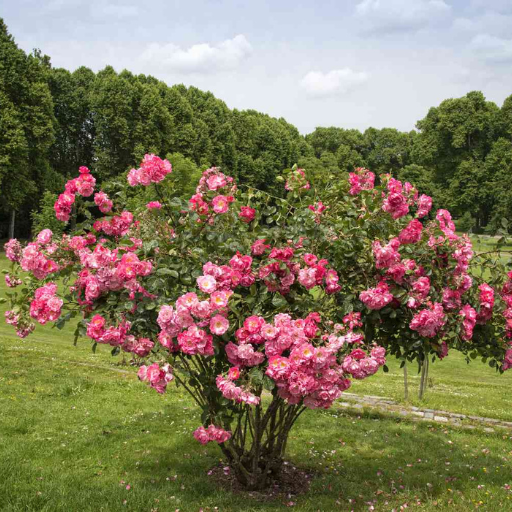
Rose Nutrition Basics
Having a balanced intake of essential nutrients helps roses to thrive and give off beautiful flowers. The main nutrients can be categorized as macronutrients, secondary elements, and trace elements:
- Nitrogen (N): This is required for vigorous growth of green foliage. If there is a shortage; the leaves turn yellow and growth becomes stunted.
- Phosphorus (P): It promotes strong root development and abundant flowering. It cannot be ignored during the early stages of growth and flowering periods.
- Potassium (K): Boosts general health of plants, rose resistance to diseases and quality. Also enhances robust growth and bright blooms.
Roses also benefit from secondary basic nutrients such as calcium which keeps cell walls strong, thus preventing blossom end rot.
- Magnesium: An important constituent of chlorophyll that boosts photosynthesis process through greening up leaves.
- Sulfur: For protein formation by synthesis in molecules of proteins, enzymes function mostly require sulfur element.
Micronutrients are needed in smaller quantities but are as crucial as any other nutrient:
- Iron: Essential for chlorophyll making which contributes to good leaf color and overall plant vigor.
- Manganese: Supports photosynthesis and nutrient uptake into the plant’s body for use in synthesis processes like respiration or construction of some enzymes.
- Zinc, Boron, Copper: Responsible for different enzyme actions and structural roles respectively.
For gardeners looking to support their roses’ healthiness while they bloom by proper fertilization and soil amendment make sure that these nutrients are continuously supplied in well-balanced proportions throughout the growing season hence enabling consistent blooming.
Nitrogen, Phosphorus & Potassium
The cornerstone minerals necessary for healthy plant development are nitrogen phosphorus potassium NPK fertilizer formulations or supplements contain these three key elements
- Nitrogen (N): it is critical for amino acid synthesis , it makes proteins while photosynthesizing so contributing towards leafy stem growth therefore lush green foliage.
- Phosphorus (P): this mineral is important for energy transfer and storage in the plant, and plays a role in physiological processes such as photosynthesis and respiration. Growth of strong roots systems is enhanced by phosphorus while flowering and fruiting are made possible through efficient metabolism of plants.
- Potassium (K): This element controls the movement of water and nutrients within plant cells. It boosts disease resistance, strengthens overall plant health, improves fruit quality and flower quality by ensuring high rates of photosynthesis activities, enzyme activation.
These three macronutrients therefore constitute a balanced fertilization program which results in optimal growth, development and reproduction in plants.
Rose Fertilizer Micronutrients
However small the quantity compared to macronutrient input, micronutrient deficiency is very significant to roses’ vigor. These vital trace elements comprise iron (Fe), manganese (Mn), zinc (Zn), copper (Cu), boron (BO3), molybdenum (MoO4), chlorine(Cl-). They are involved in different functions at various levels:
- Iron: Crucial for chlorophyll formation & also possesses numerous enzymatic roles necessary for photosynthesis.
- Manganese: Participates in chloroplast formation, photosynthesis process, nitrogen assimilation & synthesis of some enzymes.
- Zinc: The hormone production regulator that facilitate growth control and enzyme activation process takes place due to this mineral’s presence.
By balancing these microelements properly into the soil gardeners can reduce or completely eliminate any deficiencies hence ensure good vegetation cover with enough flowers. An analysis of soil composition will enable them to apply appropriate strategies when supplying these materials thus leading to more vigorous roses that are heavily bloomed.
How to Fertilize Roses in Containers
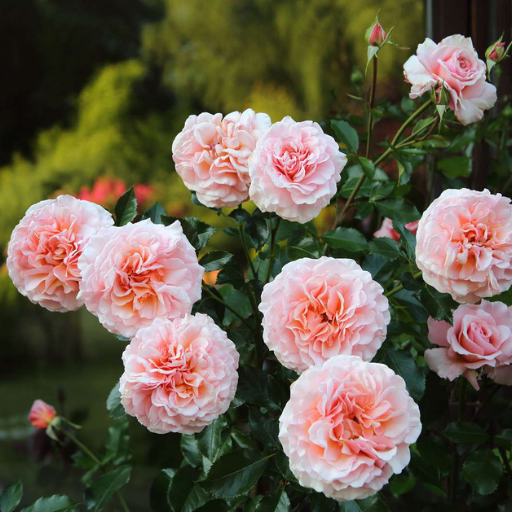
Organic Fertilizers for Container Roses: How to Choose?
It is necessary to choose organic fertilizers that provide balanced nutrient mixes and enhance healthy soil biology. Look for organic fertilizers that are made from composted manure, bone meal, blood meal, fish emulsion, kelp meal. Fish emulsion and seaweed extracts are particularly beneficial for promoting robust root development and improving overall plant health. In addition, products like worm castings can be used to facilitate immediate nutrient availability and improve soil structure. By selecting high-quality organic fertilizers, gardeners can ensure that their container roses receive the nutrients they need for vibrant growth and beautiful blooms.
Fertilization Tips for Healthy Container Roses
- Choose a Fertilizer: Use balanced rose fertilizer such as 10-10-10 or 20-20-20 formulations specifically designed for roses. Other options include organics like compost, well-rotted manure or specially formulated organic rose fertilizers.
- Timing is Key: The best time to do this is when new growth begins at the start of the growing season in early spring; feed every 4-6 weeks throughout the season until late summer so plants can harden off before winter.
- Proper Application: Follow dosage instructions and methods of application provided by the manufacturer’s so as not to damage plants through over-fertilization. Slow-release granular fertilizer may be sprinkled around the base of a plant while water-soluble ones are mixed with water during regular watering.
- Monitor Soil Moisture: Always moisten soil adequately prior to applying fertilizer in order to avoid scalding roots. Water containers well before fertilizing if the soil is dry.
- Supplement with Micronutrients: Ensure your roses get essential micronutrients such as magnesium, iron or zinc through foliar sprays or specific micronutrient products apart from the primary nutrients.
By following these tips gardeners will keep healthy container roses that grow vigorously.
Managing Nutrient Levels in Limited Soil Volumes
There are several ways of managing nutrient levels in small soil volumes. The main one is soil testing to determine the current nutrient status and identify any deficiencies or excesses. This will help you adjust your fertilizer application through regular soil tests so that plants get needed nutrients only without wasting.
Use of Slow-Release Fertilizers is advantageous: In small soil volumes, slow release fertilizers provide a continuous supply of nutrients over a long time reducing the risk of nutrient leaching or rapid depletion. Also, Container-Specific Potting Mixes play a key role as they retain nutrients better than general garden soils thus maintaining plant health for longer periods.
Lastly, incorporating Organic Matter such as compost or organic mulch can enhance nutrient retention and improve soil structure. Because it decomposes gradually, organic matter constantly supplies plants with nutrients while ensuring healthy root environment. Combining these techniques therefore enables gardeners to maintain optimal nutrient levels in small soil volumes encouraging vigorous growth and strong plants.
Are There Any Natural Homemade Fertilizers for Roses?
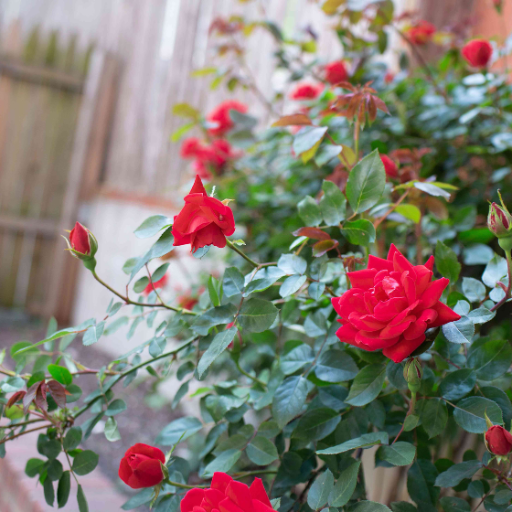
Compost and Manure as Organic Fertilizers
Oh yes, I remember seeing many useful homemade fertilizers for roses. You can choose between compost and manure. Compost has plenty of nutrients that make the soil fertile by encouraging the growth of beneficial microorganisms which in turn enhances the growth of roses. Kitchen scraps such as fruit peels, vegetable remains, coffee grounds and egg shells mixed with garden waste like leaves, and grass clippings could be used to make compost. On the other hand, another great fertilizer could be manure especially from herbivorous animals such as cows, horses or even chickens among others. It acts as a slow release source of essential nutrients thus bettering soil structure and moisture holding capacity. Both contribute to creating a balanced, nutrient-rich environment that encourages healthy rose growth.
Using Alfalfa and Bone Meal in Your Rose Garden
I will tell you how alfalfa meal and bone meal can help improve your rose plants’ health and flourishing. An organic fertilizer infused with nitrogen, phosphorus and potassium is called Alfalfa Meal; it helps to encourage root formation while boosting overall strength in flowers. By either mixing it into tea or incorporating alfalfa into the soil one can keep constant supply of nutrients necessary for roses growth. Strong roots development cannot be possible without bone meal that is rich in phosphorus together with calcium which is needed for robust blooming too . To ensure enough nourishment for growing up healthy place bone meal at base of your plants . I therefore use these supplements when developing my roses so that they can grow well in sustainable gardens.
Coffee Grounds and Other Household Organic Matters
In order to promote good health among roses there are also some household organic elements like coffee grounds that are very important when applied in your garden. Nitrogen which stimulates plant leafy growth is contained within these coffee grounds hence generally good for this purpose on leaves (Agrios 27). They also enhance conditions within soils and promote earthworm proliferation hence helping in improving soil’s health. Just by littering your compost with the crushed coffee grounds or sprinkling it around the base of the rose bushes I can give them an additional supply of nutrients. In addition to coffee grounds, other household organic materials like banana peels, which are rich in potassium, and eggshells, which provide calcium, can also be utilized. When combined with compost or soil these items will add a variety of essential nutrients that can make your gardens fertile for roses to grow in good number.
Frequently Asked Questions (FAQs)
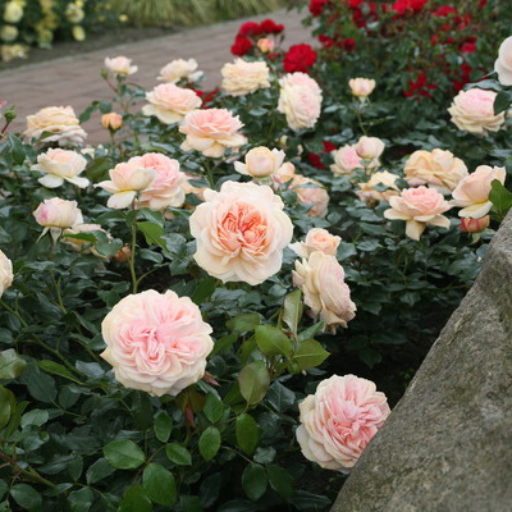
Q: How can I ensure my roses receive enough nitrogen without using too much nitrogen?
A:Balancing organic fertilizers with moderate nitrogen contents is one of the best ways to avoid over-fertilization while making sure your roses have enough nitrogen. These include fish fertilizer, compost, and well-decomposed manure that are released slowly to provide proper levels of nitrogen and other vital nutrients.
Q: What are the benefits of using fish fertilizer for my roses?
A:Fish fertilizer is an excellent choice as it provides plenty of nourishment to the plants thus promoting healthy soil biology as well as being mild on the plants. Also, it is easy for liquid fish fertilizer to be applied and absorbed by roses resulting in instant growth stimulation and better plant health.
Q: Can I use flower fertilizer year-round for my roses?
A:As far as applying flower fertilizers on your roses is concerned, seasonal approach should be taken into consideration. Overfertilizing can damage your plants although organic nutrients may help a lot. Normally, you have to fertilize your roses during their growing season (spring and summer) while refraining from fertilizing them when they go dormant (late fall and winter).
Q: How does soil pH affect my choice of fertilizer for roses?
A.Roses prefer slightly acidic or neutral soils (pH 6.0-7.0). Take care not to choose fertilizers that change dramatically in soil pH.. Compost or fish-based options usually have balanced pH whereas some inorganic alternatives can make soils either acid or alkaline.
Q: What is the best way to fertilize roses in containers?
A.For potted species use liquid fish fertilizer or ready-to-use organic rose food products off the shelf.. According to package instructions usually at intervals of 4-6 weeks but with enough drainage so that there isn’t a buildup up of fertilizer that could harm their plants.
Q: Is there a guide to fertilizing roses organically that I can follow?
A:Yes, there are numerous resources available on organic rose fertilization. A comprehensive guide should include choosing the right organic fertilizers for roses, understanding their nutrient requirements, timing when to apply them in relation to the growth cycle and ensuring healthy plants overall to have lovely flowers.






